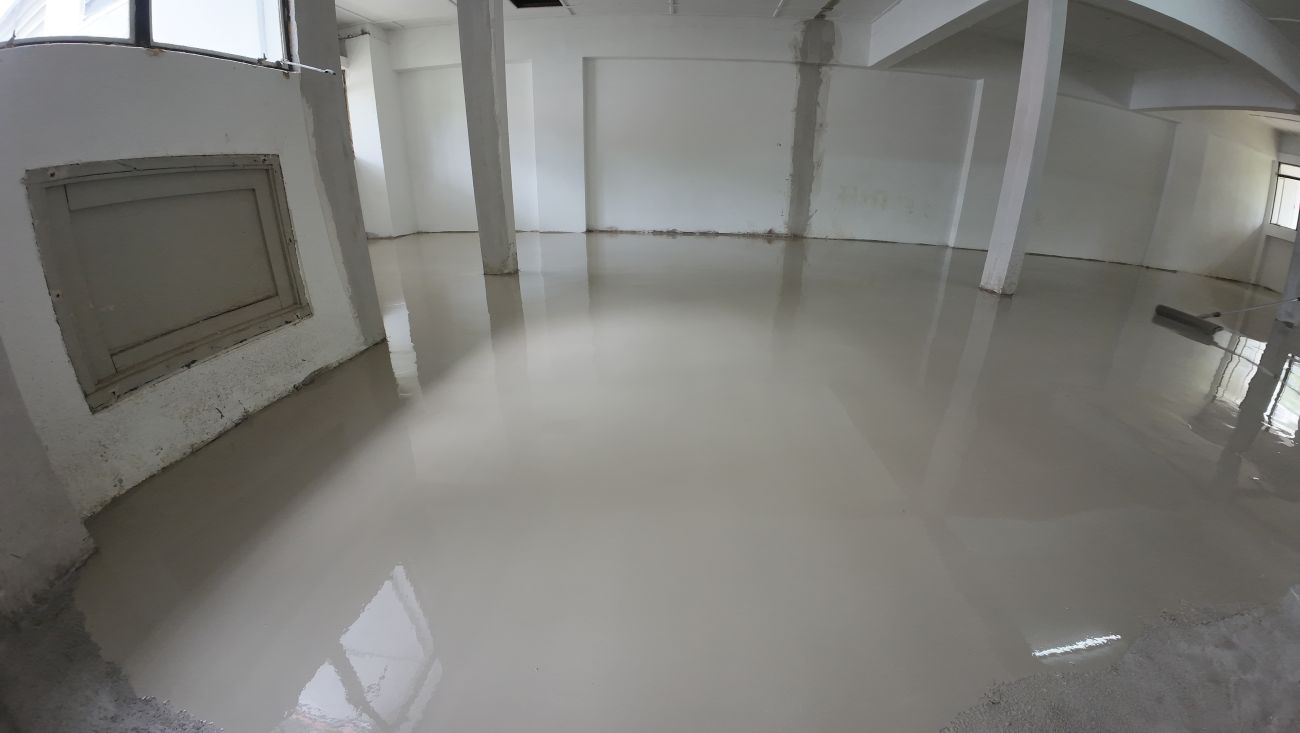Can Self-Levelling Stick To Cement?

There is a common question that people ask. We see it in the bill but what does it really do? Does self-leveling compound stick to cement screeding?
Self-Levelling vs Cement Screed
Cement screed and self-leveling both aim to achieve the same goal, but they differ in how well they do it.
Cement screed levels with significant height differences. So from one side of the ground to the other side, there may be at least a 25 mm difference. Cement screeding will be the obvious choice.
Self-leveling is for more precise leveling. It is for a 5 mm difference between 2 sides of the ground. You can read the purpose of self-leveling here.
So does self-leveling compound stick to cement?
After the cement screed dries, someone applies the adhesive primer to the ground. This will allow self-leveling to bond to the floor. This will make self-leveling bond to the floor with the cement screed.
It can last close to a lifetime (close to 20-50 years) except for a few exceptions.
Outdoor or uncontrollable settling environment – A self-leveling compound needs time to settle. In an uncontrolled outdoor setting, factors will affect drying and settling.
Introduction of water. Water will erode self-levelling compound even after it settled. This will cause the flooring to be unstable underneath and cause the flooring to be wavy.
Is your self-leveling required before the installation of any other flooring work? If so, what is the process like? What will even be appropriate for your floor? We provide a one-stop solution for all your flooring needs. Get all your answers with a free consultation and quote from our flooring expert.
Book An Appointment
Vix Marketing Pte Ltd
623 Aljunied Road, #03-04
Aljunied Industrial Complex
Singapore 389835
Opening Hours:
Monday -Friday : 9am to 6pm
Tel: (+65) 6744 2880 / 6289 2883